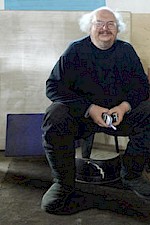LPs vs. CDs, Round 2 -- A Clarification:
I was taken to task for my earlier blog, Do LPs sound better than CDs? And Why They May, by an old friend and acknowledged expert in the field. I must apologize to for not making my position perfectly clear.
I accept that the ‘Red-Book’ digital standards for CDs developed by Sony and Phillips very closely matches or exceeds human hearing on music in a normal environment. This has been confirmed by recent experiments of down-sampling High Definition records to Red-Book standard and then doing comparisons of the two. All results (that I am aware of at this time) indicate the two standards are indistinguishable in blind testing. And, in my opinion, blind testing of audio gear is stringent enough to reveal any significant problems. Of course, High Definition standards should be used in mastering recording since each step of the process degrades the quality (and there are usually many steps from initial performance to final record).
I accept that analog recording and playback from LPs certainly has limitations and problems that are fairly easily heard by experienced listeners. (Although working within some of these limitations, such as S/N, can make the recording more useful in the home environment.)
The main point I was trying to make was that it is the human element that generally dominates the quality of the recording. An LP or High Definition CD engineered for playback in an audiophile’s listening room is going to sound better than a Red-Book CD engineered for playback in an automobile. Technology, digital or analog, is secondary to how it is used by humans: the recording engineers.
Speakers are another story. No two brands sound the same even to casual listeners. Thus, no two brands are perfect, since if they were both perfect, they would have to sound the same. And I maintain no brand, including Ohm, is perfect; so, we just struggle onward, getting closer.
Enjoy & Good Listening!
John
Subscribe to Ohm News & Views to get the latest posts in your inbox
John Strohbeen Author
John Strohbeen was the founder and president of Ohm Speaker.


